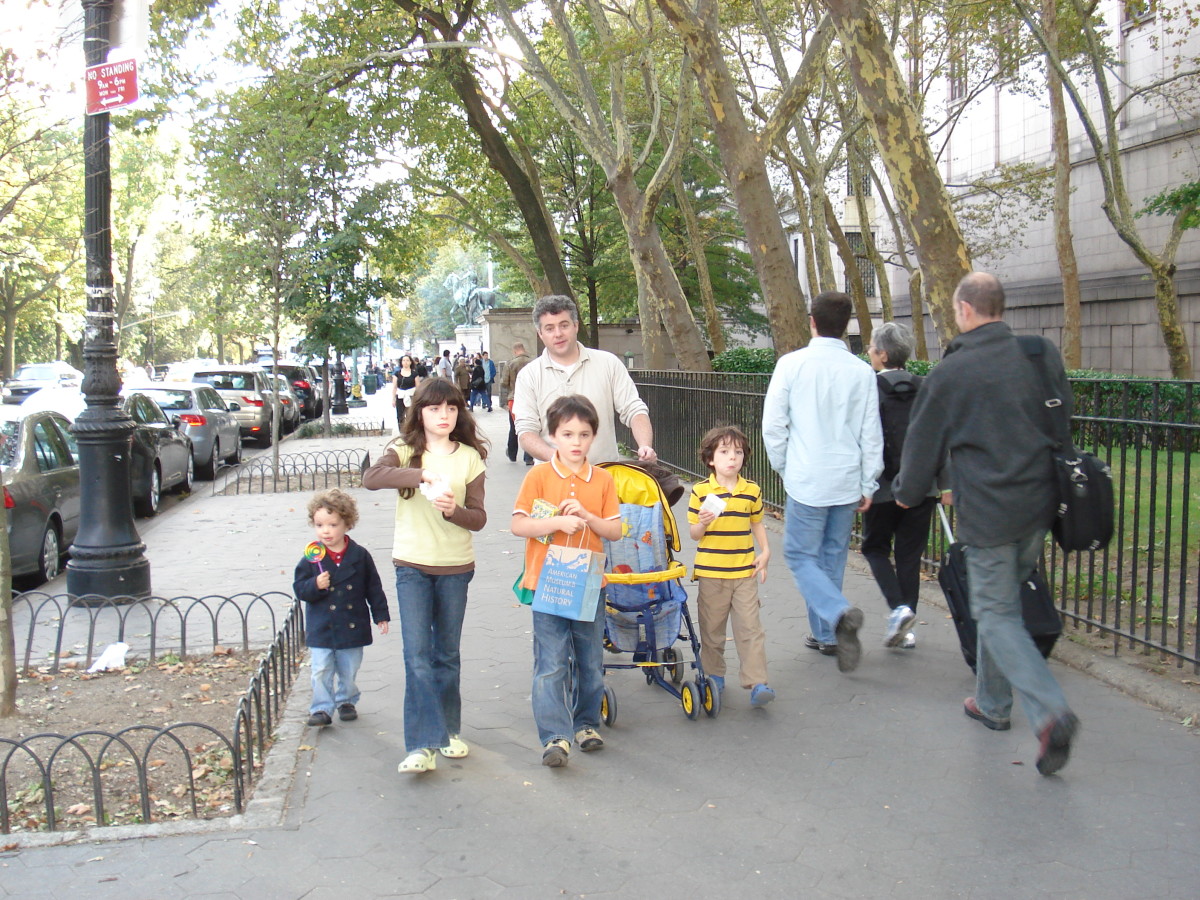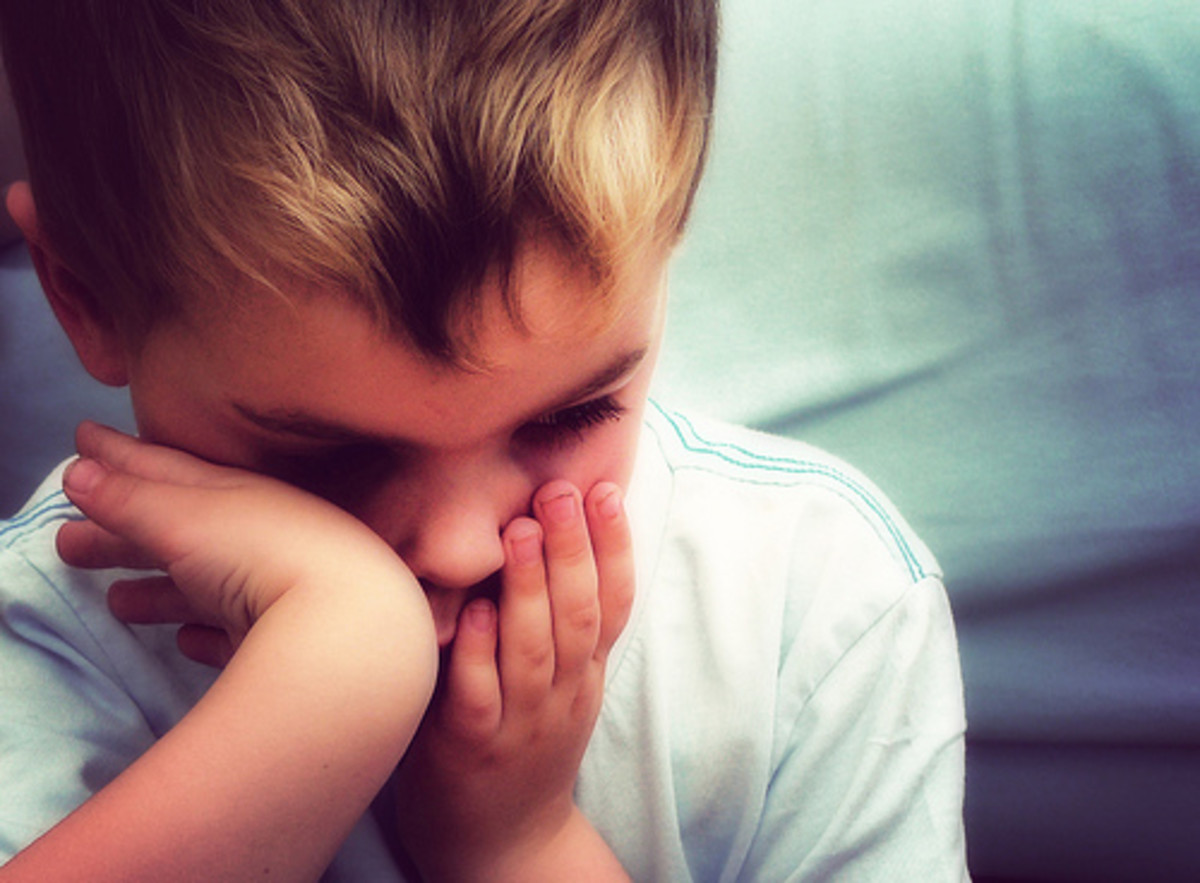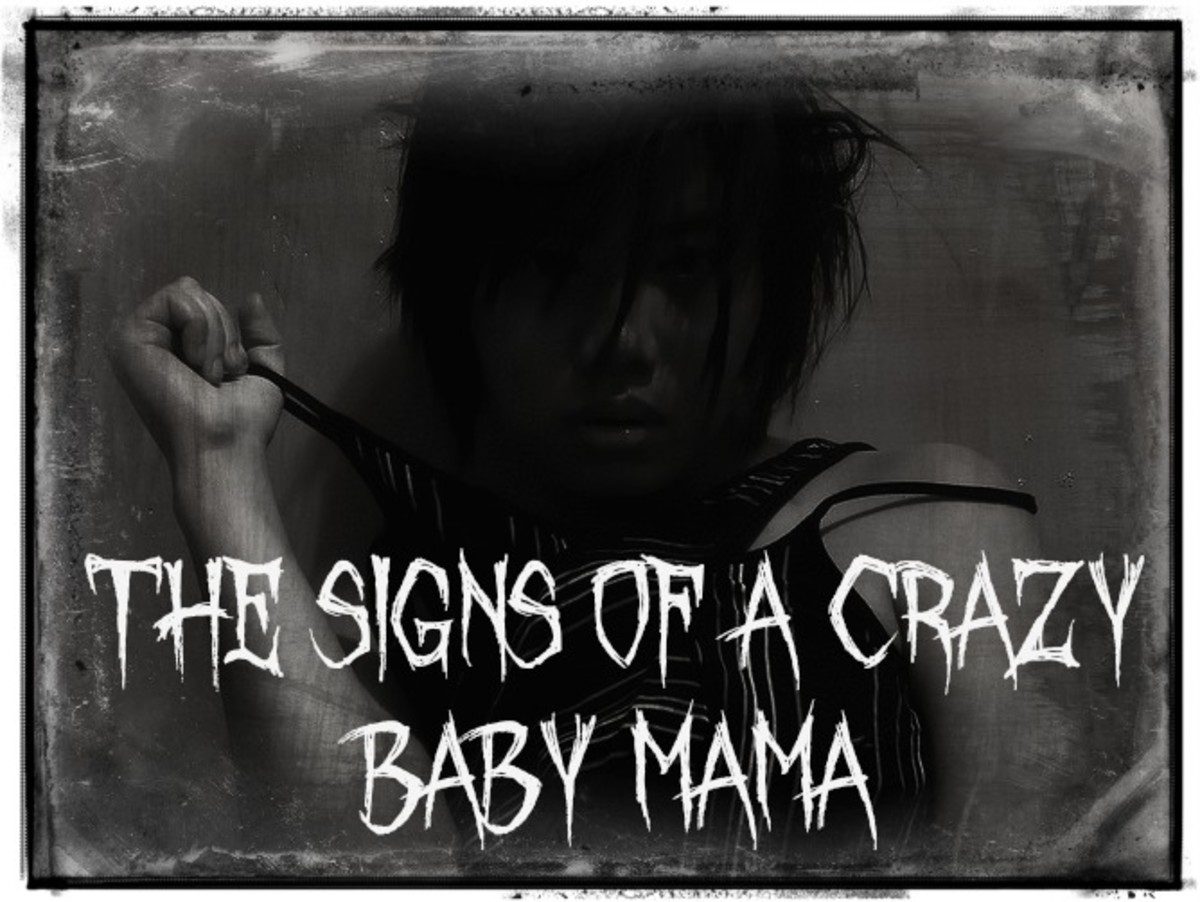The Correlation Between a Person's Family Size of Origin and His/Her Future Role as a Parent


Your Respective Family Size Of Origin Often Influences What Type Of Parent You Eventually Become!
There are myriad influences which determine the type of parent a person becomes. One of those influences are a person's respective birth family size. Whether a peson comes from a small or large family is greatly influential and a very strong determinant as to the type of parent he/she eventually becomes.
Children raised in the small family environment oftentimes receive more parental attention. This attention encompasses financial, intellectual, and emotional components. There are usually more of such resources in the small family than it is in the large family. In the small family, there is a greater ratio of adults to children. Children raised in the small families are exposed to more adult models in their immediate environment thus gaining more adult mannerisms, higher intellectual development, and a more advanced vocabulary. In the small family environment, parents are the teachers and take an active part in raising their children.
The description of the parental style in small families is involved, loving, and hands on. Parents in small families enjoy their children and have the economic resources to provide the children with the best possible lifestyle. Sociological studies substantiate that parents in small families are less stressed and happier in that they have the number of children that they can reasonably manage. In addition to this, parents in small families take the time to teach and talk to their children. Parents of small families use educational and intellectual forms of discipline and correction.
Children in large families receive little or no parental attention. It is quite de rigueur that children in large families raise each other as their parents are too involved in day to day activities to pay attention to the former. In the large family environment, parental economic, psychological, and emotional resources are stretched extremely thin. Parents of large families often report feeling stressed out beyond endurance by the number of children they have to raise.
Typical parents of large families find raising their children an extremely daunting challenge. Because many parents cannot reasonably manager to raise such a large number of children, they often assign their oldest children to raise their younger siblings. Average large families are often in dire economic straits with the parents barely ekeing out a living. The primary concern of parents in large families is to just provide their children with only the bare rudiments of life, nothing more, nothing less. In large families, there is a likelihood that there is some type of outside assistance whether it is charities and/or relatives as many parents cannot adequately provide for the sustenance of their children.
There is a huge amount of stress in the large family environment as the parents cannot reasonably control their children. Corporate punishment is de rigueur in the large family environment as parents do not possess the time to teach and talk to their children. Children in large families grow up in an environment surrounded by children. As a consequence of this, they have more childish mannerisms and less intellectual development.
Psychological and sociological studies confirm that the more children in the immediate familial environment, the less intellectually developed a child becomes. In large families, there is little or no adult interaction. Contrast to this to small families where there is always adult interaction. In large families, children are left to fend for themselves. This translates to either they sink or swim.
People who come from small families are more loving and involved parents. It is their contention that parents are the main teachers of their children. They do not believe that children ought to raise themselves as this idea is toally abhorrent to them.
Parents from small families view their children as precious individuals who should have the best opportunities available. These parents are totally hands on. In addition to that, they are actively involved in their children's lives. They also involve their children in cultural and intellectual activities.
Parents who come from small families strongly believe in intellectual activities and education. It is their assertion that there is more to life than just the rudiments of food, clothing, and shelter. They believe in living and enjoying life thus imparting such values to their children. In the homes of small families, there are usually books and other intellectual paraphenalia. These parents are modelling the small familial environment which they were raised in.
Parents from small families believe in communicating and discussing things with their children. They also are practictioners in the methodology of intellectual and educational punishments for their children. It is their argument that children learn more from intellectual punishments than they would corporal punishments. For example, a famous celebrity who was one of two children, indicated that her parents never used corporal punishment but educated her and her brother as to the consequences of their actions. She, as a parent, used the same methods to raise her children.
Parents from large families are usually not involved in their children. They believe that children should learn on their own by osmosis and simply raise themselves. For example, there was a neighbor who came from a family of nine children. She was highly educated and is a mother of one child. She never interacted with her child. When she came home from work, she just put their child in a playgroup.
At the age of two, her daughter was not talking. The neighborhood became alarmed and went to a pediatrician. He asked her if she communicated and talked to the daughter and have her respond. She stated that the daughter initially began to speak at six months but she only cursorily responded to her daughter.
As a result of this response, the daughter stopped talking. The pediatrician chastised the neighbor when she stated that she "thought" her daughter would talk. Then the pediatrician proceeded to inform her that it was her jobas a mother to interact, teach, and talk to her child.
This neighbor was a poor mother to say the least. Even though she was the oldest in her family and raised her younger siblings, she never gained parental skills. She was a perfunctory mother. In her family of origin, her parents never interacted with them, believing that children should be left to their own devices and raise themselves. According to her, she and her siblings seldom, if ever, interfaced with their parents.
Other examples are my two maternal aunts who came from a family of ten children. They had very little interaction with their respective children. Whenever they could, they placed their children in the "care" of older cousins. They simply could not be bothered by their children. They preferrerd to remain unencumbered by children whom they viewed as a nuisance. They never talked nor interfaced with their children, leaving them to their own devices.
Cultural and intellectual activities are not emphasized and/or valued in the large family environment. Children in large families are just taught the basic human needs of survival and just getting by. In the homes of large families, there are seldom any books and other types of intellectual and cultural paraphenalia.
Parents of large families oftentimes place little, if any, value on academic, intellectual, and/or cultural activities. These types of activities are quite an anathema in large family households. Such parents value street values and basic survival. If you notice people from large families, they are rough around the edges and possess an extremely hardscrabble mentality as this was in their early familial environment. al survival. If you notice people from large families, they are rough around the edges and have a hardscrabble mentality as this was in their familial environment.
Parents from large families oftentimes are more harsh and punitive parents. They believe in using corporal and other harsh forms of punishment and discipline regarding their children. In the large family environment, parents do not simply have the time nor energy to talk and discuss things with their children.
When such parents become stressed, children are punished harshly. Corporal punishment, oftentimes verging on abuse, is commonplace in the large family environment. Children in large families are not viewed as precious beings but just are period, pure and simple.
To summarize, people from small families are more loving, caring, and involved parents. This is because in the small family environment, parents are the main teachers for their children. Furthermore, children oftentimes do not raise themselves in small families.
In small families, parents are involved in their children's activities. Parents who are from small families contend that there is ore to raising children than to just merely provide them with the rudiments of food, clothing, and shelter. To such parents, parenting includes providing their children with cultural, intellectual, and educational activities in addition to educating their children regarding the higher human needs.
Parents from small families are avid and strong proponents of talking to and discussing things with their children. It is their contention that daily interaction with their children is how the latter learn. These parents practice intellectual and educational punishments in disciplining their children. They enjoy their chidren and view them as precious individual beings as this was modelled for them as children in their small family environment.
In contrast parents from large families are of the school that children should raise themselves if as by osmosis. They are not active participants in their children's lives as their own parents were uninvolved in theirs. Parents from large families can be aptly described as hands off parents. Their mantra is that children should have as little interference from them as possible.
Parents from large families treat their children harsher and tougher than parents from small families. The former believe that their children should learn by doing and experience, not by teaching them. They do not subscribe to the idea that their children are precious individuals. They believe in basic survival and street smarts, imparting those values unto their children. Intellectual, educational, and cultural activities are unimportant in the homes of large families.
In addition to the aforementioned, parents who come from large families usually have a harsher and more cynical view of life. This is because in their early familial environment, the main emphasis was ekeing out a living for the mere necessities. In large families, parents have an extremely difficult time providing their children with the mere rudiments of life. Large families are at the mere subsistence level and nothing more. Large families are more likely to be impoverished than small families. Everything in the large family environment is a constant and unending socioeconomic struggle for mere survival, nothing more.
Parents from large families usually have a hardscrabble life which is reflected in how they raise their own children. They believe in raising their children in a brusque manner which frequently includes corporal punishment. They are adherents of corporal and/or other harsh form of punishment in disciplining their children.
This is par for the course as because this type of punishment was used on them as children. They are also perfunctory parents who view parenting as an onerous responsibility. Parents from small families, au contraire, are caring and nurturing parents who view parenting as an educational joy!
Related Hubs On the Subject
- Children From Large Families Tend To Raise And Suppo...
The family is one of the most important, if not the most important, societal institutions. It is the familial environment where one receives nurturance, care, and encouragement. Parents financially provide for their children in terms of necessities.. - How Being From a Small Family Leads to Self-Actualiz...
Children from small families are more socioeconomic affluent and have parents who stress the importance of education, high achievement, and living life beyond the rudiments. They are taught to have a high sense of self and not to settle for second be - The Culture of the Large Family
Families have their own unique culture based upon educational, socioeconomic, and religious/ethical backgrounds. Another variant of familial culture is family size. Family size is a strong determinant in the parental attitudes toward offspring; the..
© 2011 Grace Marguerite Williams








